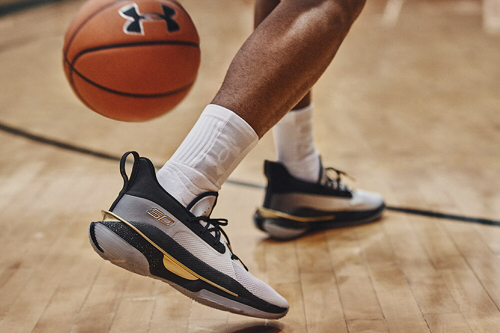Under Armour Discontinues $280 Million Contract with UCLA
Jessica Anderson
Under Armour confirmed Saturday that it is suspending its record $280 million contract outfitting UCLA athletes that was supposed to last 15 years.
“Under Armour has recently made the difficult decision to discontinue our partnership with UCLA, as we have been paying for marketing benefits that we have not received for an extended time period. The agreement allows us to terminate in such an event and we are exercising that right,” Under Armour officials said in a statement Saturday.
The Baltimore-based athletic apparel brand signed UCLA and its storied athletic program to the massive deal in May 2016 as it was aiming to take on Nike and Adidas in the sneaker marketing wars. But not long after, Under Armour’s sales faltered and the company has been retrenching in the past few years, only to see sales plummet again amid the coronavirus-related economic slowdown.
In May, the company said it would seek to renegotiate endorsement contracts amid the latest slump in sales and demand.
“We know that this has been a challenging time for athletes, sports programs and performance apparel brands alike,” the company said Saturday. “Under Armour will continue to preserve our strength in this challenging environment, while maintaining a strong network of partnerships with individuals, organizations and leagues that make us the on-field authority for focused performers.”

UCLA officials “are exploring all of our options to resist Under Armour’s actions and will share more information as we can,” according to a letter from outgoing athletic director Dan Guerrero, the Los Angeles Times reported Saturday.
The Times also reported that UCLA is facing a budget deficit that has worsened since the coronavirus pandemic canceled spring sports.
UCLA reportedly received $15 million in cash from the Under Armour deal in 2016, and approximately $11 million annually in rights and marketing fees, according to an earlier Los Angeles Times report. Under Armour also agreed to provide $7.4 million worth of sportswear and pay $2 million over eight years for two campus athletic facilities.
Under Armour was expanding rapidly when it signed the lucrative deal with UCLA, regularly reporting double-digit sales gains. In addition to UCLA, Under Armour also signed the University of Wisconsin in 2015 and Notre Dame in 2014.
Outfitting teams provided athletic brands with exposure during televised games, and helps connects alumni and fans with the brand, experts said.
In early 2017, Ryan Kuehl, then Under Armour’s senior vice president for global sports marketing, told The Baltimore Sun that the company’s strategy was to be selective.
“We’re never going to be the brand with the most athletes or the most schools, most entertainers – that’s not who we are,” Kuehl said. “We want the right ones, the ones with the high character and the elite talent, that have a certain flair that people want to follow and are interested in.”
Kuehl was ousted by the company in late 2018 amid a review of corporate spending at events, on nights out and on gifts to athletes.
Since its sales and profitability slumped, Under Armour has been reorganizing, cutting costs, including laying off workers, and attempting to rediscover its mojo with little apparent success. As the coronavirus crippled the economy earlier this year, the company lowered its full-year sales estimates in its key U.S. market and said it was bracing for additional declines due to the pandemic.
The company confirmed last year that the federal Securities and Exchange Commission and Justice Department were investigating Under Armour’s accounting practices. And in October, the company announced that Patrik Frisk would replace the company’s founder, Kevin Plank, as CEO.
Plank, who remains at the company he still controls as executive chairman and brand chief, long said Under Armour’s goal is to overtake Nike as the dominant global athletic brand. Giving up UCLA is a likely blow to those aspirations.








